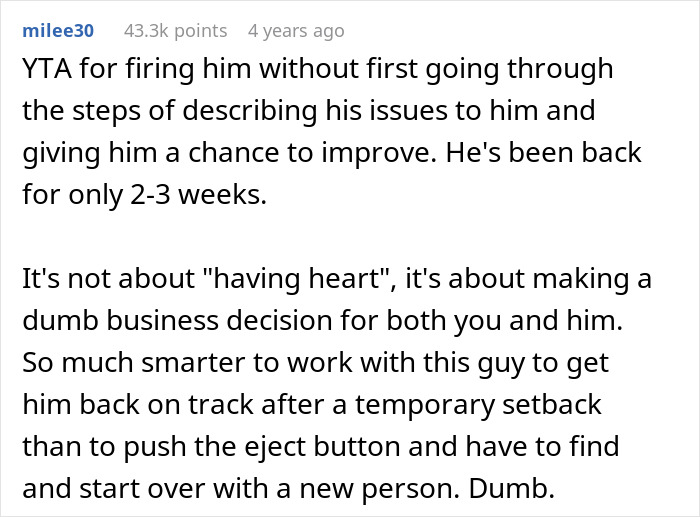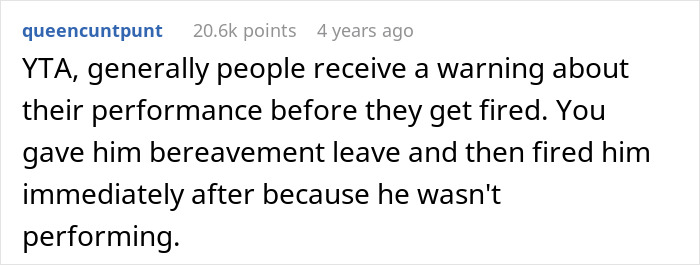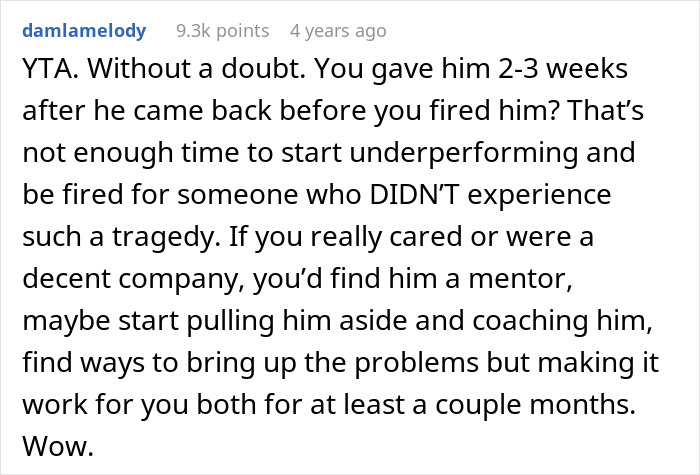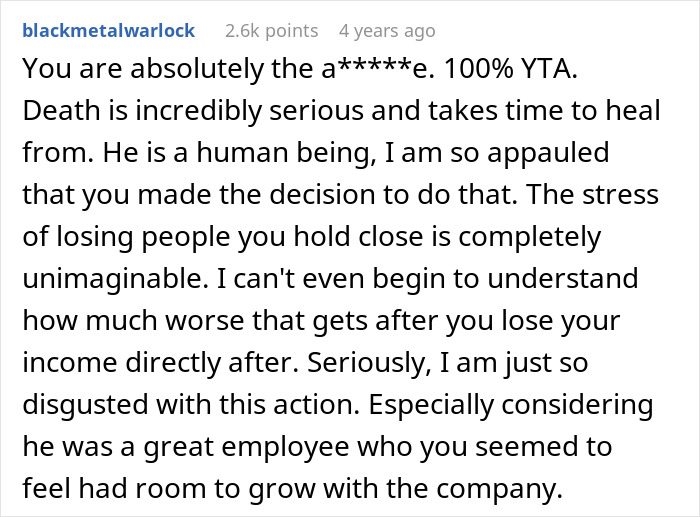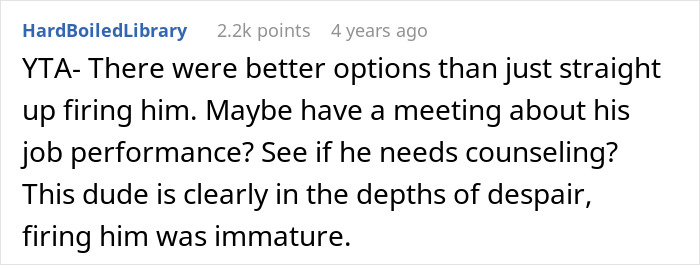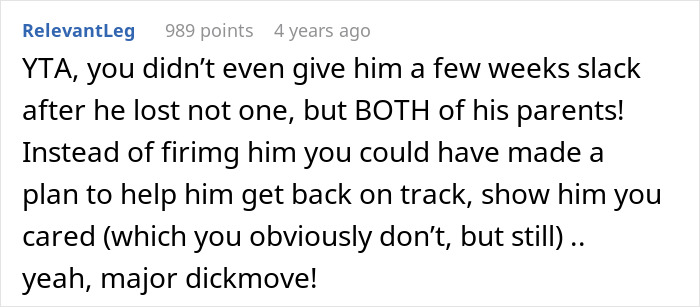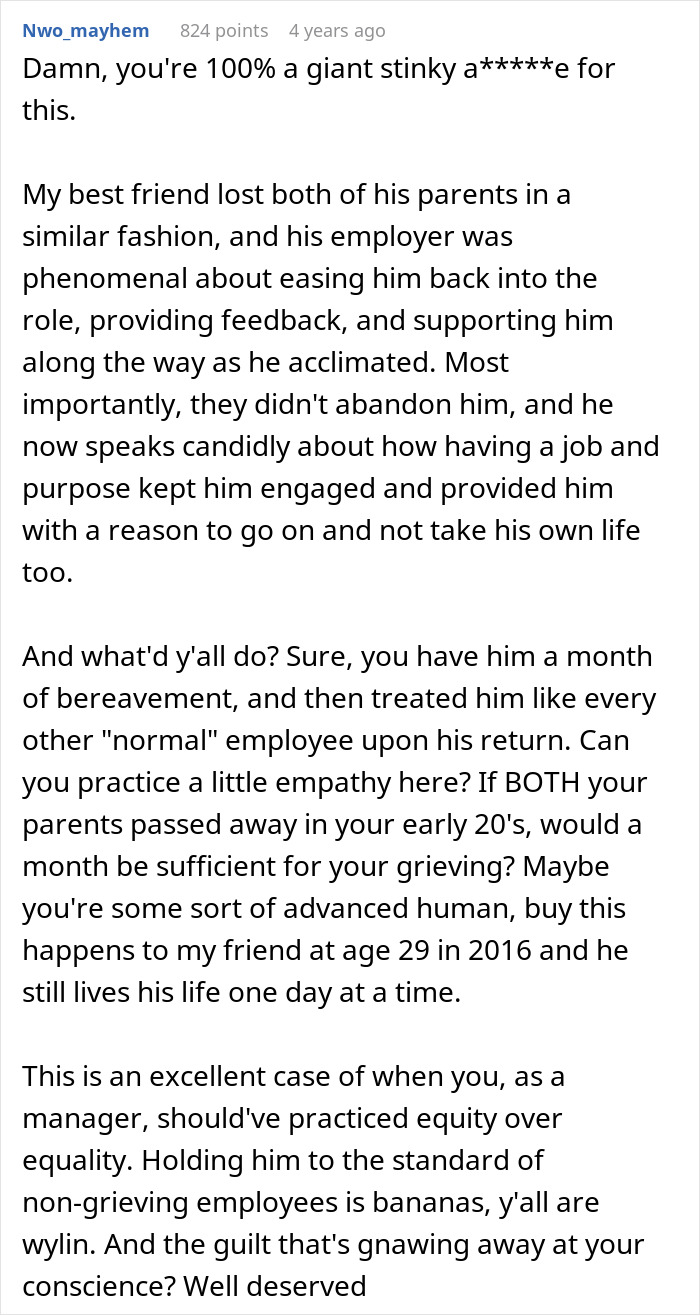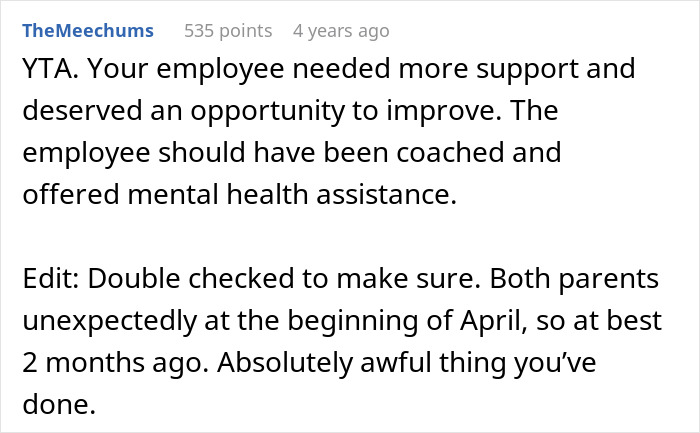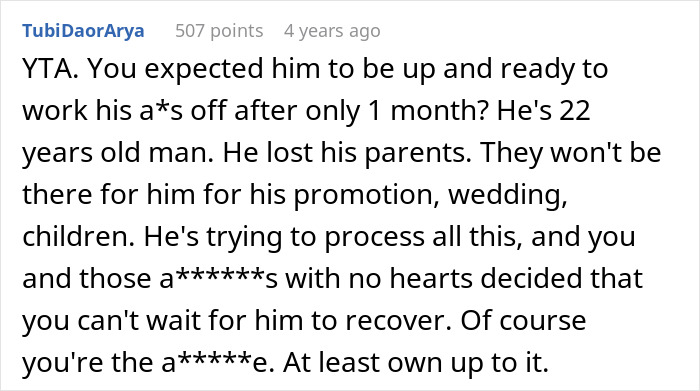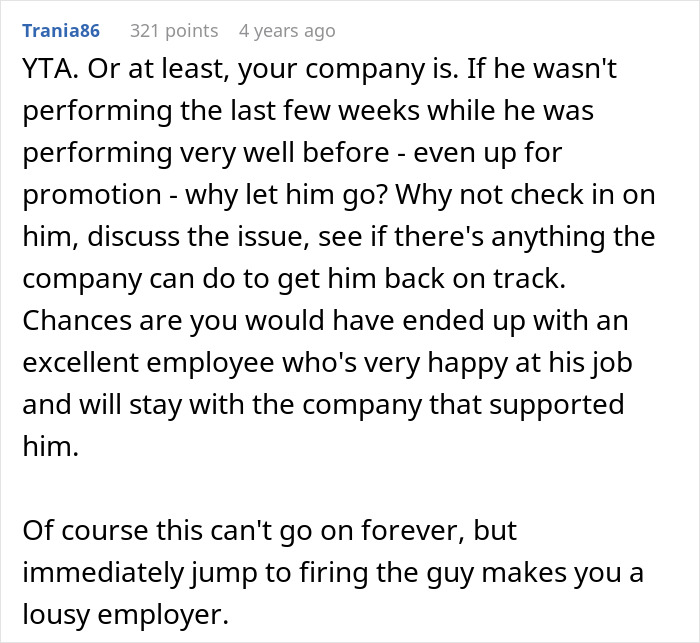Out of the things that matter in a workplace, employee support should be at the top of the list. And I’m not talking about high-fives for successfully handling a difficult client.
The way companies and managers show up for them during painful and traumatic periods of their lives is something they will never forget.
Sadly, this also includes times when employers fall short, making people feel undervalued in their most vulnerable moments. Which is exactly what happened to a young man in Reddit user Resident_Occasion‘s team.
This manager had a grieving employee in her team

Image credits: cottonbro studio / pexels (not the actual photo)
But she ultimately decided to fire him





Image credits: Sora Shimazaki / pexels (not the actual photo)


Image credits: Resident_Occasion
Experts say employees in these painful situations often do not receive the support they need

Image credits: Alena Darmel / pexels (not the actual photo)
This story is a sad illustration of the fact that while organizations have been conscious about how they approach parental leave, wellness benefits, and remote work, many fail to set up strong bereavement policies.
Because of that, Anthony Casablanca, a former HR executive, together with his brother Guy, a funeral director and mortician, co-founded GriefLeaders LLC, a training and consulting organization in the Indianapolis area that educates managers on how to help grieving employees.
Bereavement benefits are often too brief, Casablanca said, acknowledging the fact that about 88 percent of companies offer some paid leave in these devastating circumstances, but pointing out that most allow employees to take off just two to four days.
To meet the need for longer time away, “we have found that managers have a lot of flexibility in adjusting work hours or allowing people to use vacation on short notice,” Casablanca said.
Before offering those possibilities, however, he stressed that bosses have to find out how the grieving worker is coping and what is needed.
According to Casablanca, managers mustn’t wait for performance to slip. Instead, they need to be observant. If a generally talkative person clams up at meetings, that’s the time to invite them to talk privately, he said. Instead of getting grilled, employees should know that managers are available to have a conversation about how things are going. These talks are best when they’re simple and to the point; for example, a phrase like “I can’t imagine all the emotions you are feeling. We want to help you through this” can go a long way.
But guessing from the post, its author may not have said it.
